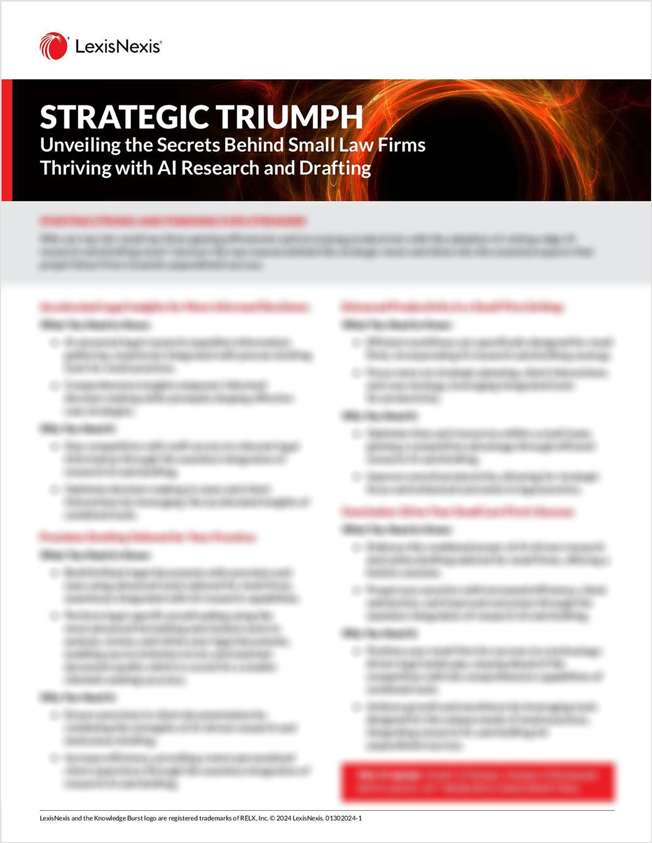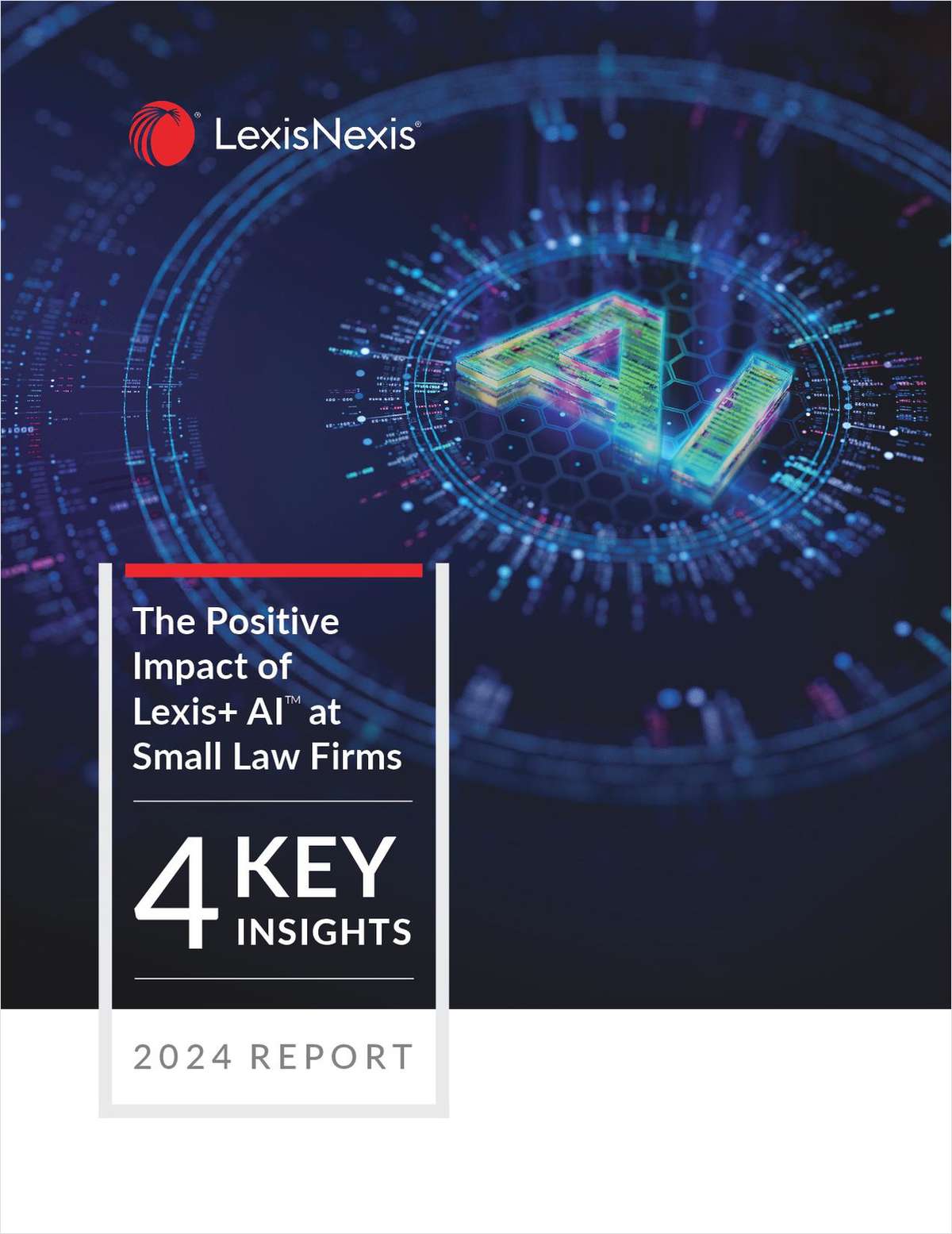ICO Battlefields Proliferate: Preparing for Private Litigation and Regulation Now
The popularity of cryptocurrencies and initial coin offerings (ICOs) has risen so dramatically that this year Merriam-Webster added definitions for both phrases to its most recent edition.
April 27, 2018 at 12:35 PM
9 minute read
The original version of this story was published on The Recorder

The popularity of cryptocurrencies and initial coin offerings (ICOs) has risen so dramatically that this year Merriam-Webster added definitions for both phrases to its most recent edition. In light of the wave of regulatory actions and private litigation that has followed ICOs—a wave that is sure to accelerate—it is perhaps more than a coincidence that Merriam-Webster's newest edition also added the phrase “dumpster fire.”
Some innovative companies have sought to use ICOs as a new method to raise capital. In an ICO, a company will offer a coin or token in exchange for fiat currency or other cryptocurrencies, which provide capital to the company or fund specific projects.
One key issue plaguing cryptocurrency regulation is the application of Great Depression-era securities regulations—and private class action lawsuits based on those regulations—to a modern, rapidly developing technology. For over 80 years, the SEC and the courts have consistently used the Howey test—first established by the U.S. Supreme Court in the 1940s—to determine what activities fall under federal securities laws, see SEC v. W.J. Howey, 328 U.S. 293 (1946). Under the Howey test, an instrument is considered a security if: a person invests money; in a common enterprise; with the expectation of profits; and solely from the efforts of others. In light of this construct, SEC Chairman Jay Clayton recently testified before the Senate that “I believe every ICO I've seen is a security,” despite the fact that “not one” of these ICOs has been subjected to the registration requirements of the Securities Act and the Exchange Act. As the chairman implied, actual application of securities laws to ICOs by courts has been slow to develop, but it is increasingly picking up speed.
Enforcement Actions
The SEC first weighed in on ICOs when a decentralized, autonomous organization known as “The DAO” sought to sell tokens to fund “projects” to produce earnings for investors. The SEC concluded The DAO's tokens were securities subject to the requirements of federal securities law. Ultimately the SEC chose not to bring charges or make any findings of violation against The DAO, but used the opportunity to inform both issuers and investors that, under certain conditions, crypto-currencies may be securities and thus subject to federal securities laws.
NOT FOR REPRINT
© 2024 ALM Global, LLC, All Rights Reserved. Request academic re-use from www.copyright.com. All other uses, submit a request to [email protected]. For more information visit Asset & Logo Licensing.
Trending Stories
- 1'I'm Staying Everything': Texas Bankruptcy Judge Halts Talc Trials Against J&J
- 2What We Know About the Kentucky Judge Killed in His Chambers
- 3Judge Blasts Authors' Lawyers in Key AI Suit, Says Case Doomed Without Upgraded Team
- 4Federal Judge Won't Stop Title IX Investigation Into Former GMU Law Professor
- 5Ex-Prosecutor and Judge Fatally Shot During Attempted Arrest on Federal Corruption Charges
Who Got The Work
Charles A. Weiss of Holland & Knight has entered an appearance for Rafael Badalov in a pending trademark infringement lawsuit. The suit, filed July 26 in New York Eastern District Court by Lee Law on behalf of Otter Products LLC, accuses the defendant of selling counterfeit phone cases and accessories bearing the plaintiff's 'OtterBox' trademark. The case, assigned to U.S. District Judge Nina R. Morrison, is 1:24-cv-05214, Otter Products, LLC v. Badalov et al.
Who Got The Work
Gibson, Dunn & Crutcher partners Benjamin Hershkowitz, Richard W. Mark and Casey J. McCracken and R. Scott Johnson, Thomas M. Patton and Cara S. Donels have entered appearances for Berkshire Hathaway Energy Co. and MidAmerican Energy Co., respectively, in a pending patent infringement lawsuit. The case, filed July 17 in Iowa Southern District Court by Nyemaster Goode PC and Caldwell Cassady & Curry on behalf of Midwest Energy Emissions Corp., asserts six patents related to sorbents for the oxidation and removal of mercury. The case, assigned to U.S. District Judge Stephen H. Locher, is 4:24-cv-00243, Midwest Energy Emissions Corp. v. Berkshire Hathaway Energy Company et al.
Who Got The Work
Michael J. Hickey and Michael L. Jente of Lewis Rice LLC have stepped in to represent Tidal Wave Management in a pending trademark infringement lawsuit. The case, filed July 18 in Missouri Western District Court by Husch Blackwell on behalf of Waterway Gas & Wash Co., accuses the defendant of using a mark that's confusingly similar to the plaintiff's 'Clean Car Club' mark. The case, assigned to U.S. District Judge Fernando J. Gaitan Jr., is 4:24-cv-00471, Waterway Gas & Wash Company v. Tidal Wave Management LLC.
Who Got The Work
Wachtell, Lipton, Rosen & Katz partners Lauren M. Kofke and William Savitt have stepped in to represent CVS Health and and its top officials in a pending shareholder derivative lawsuit. The complaint, filed Aug. 30 in New York Southern District Court by the Brown Law Firm on behalf of Chaya Sara Kaufmann, accuses the defendants of failing to disclose that they used misleading forecasts to set premium plans which overstated the profitability of the company's health care benefits segment. The case, assigned to U.S. District Judge Margaret M. Garnett, is 1:24-cv-06595, Kaufmann v. Lynch et al.
Who Got The Work
Robert L. Wallan from Pillsbury Winthrop Shaw Pittman has entered an appearance for Findlay Management Group in a pending complaint for declaratory judgment. The complaint, filed on Aug. 8 in Nevada District Court by Gordon Rees Scully Mansukhani and Skarzynski Marick & Black on behalf of Houston Casualty Co., seeks to declare that no insurance policy exists between Houston Casualty and Findlay due to there not being an adequate form of delivery and claims that if delivery was substantiated it is rescinded based on material omissions and misrepresentations. The case, assigned to U.S. District Judge Gloria M. Navarro, is 2:24-cv-01459, Houston Casualty Company v. Findlay Management Group.
Featured Firms
Law Offices of Gary Martin Hays & Associates, P.C.
(470) 294-1674
Law Offices of Mark E. Salomone
(857) 444-6468
Smith & Hassler
(713) 739-1250








